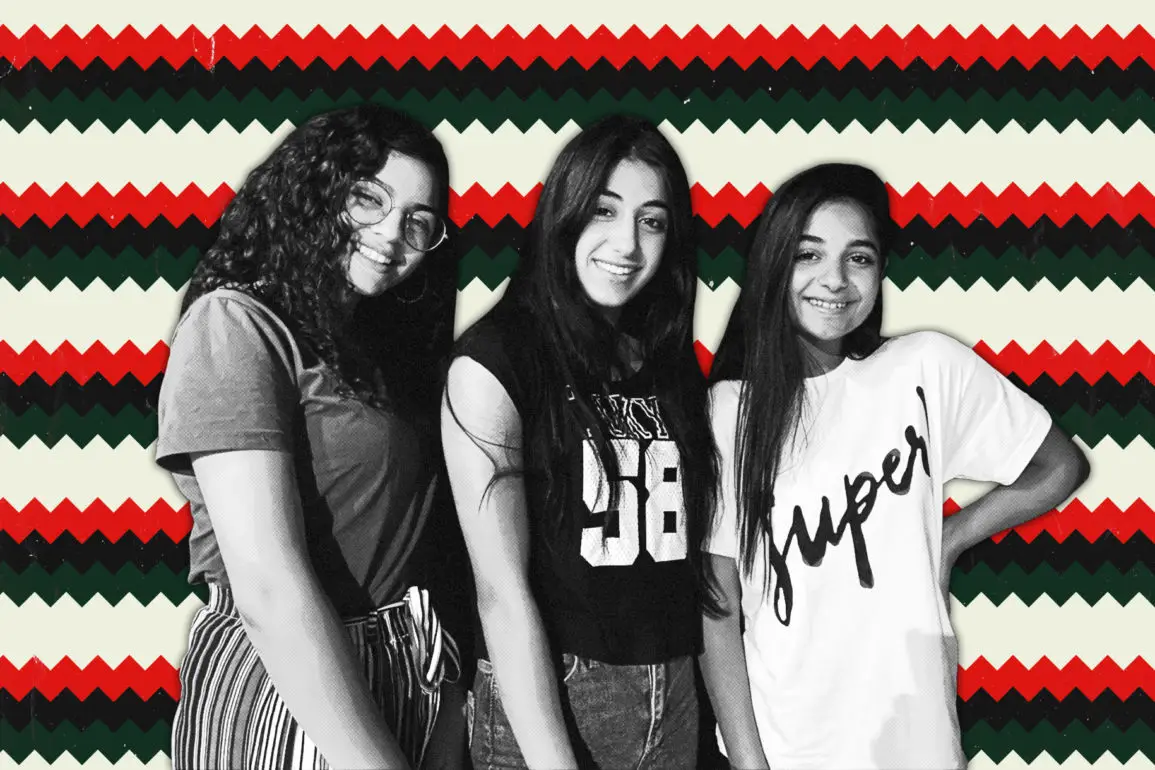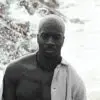It was early morning in Mexico City as I rushed to catch Diala–one of three MC’s from Ettijah, Palestine’s first female hip-hop group–before the only place in the West Bank where she had access to reliable internet closed. She’d traveled there to make this interview possible, and as we struggled to stay connected on Skype, all the while grappling with cutoffs, video freezes, and noise, she answered my questions with grace regardless of the connection difficulties. I conducted this interview right before the coronavirus outbreak in Palestine, and while my mind was somewhat scattered from a month or so of quarantine here in Mexico, the weight of the circumstances faced by Ettijah and their community seemed much greater than any of the troubles I was facing here.
The following is drawn from that interview with Diala, as well as subsequent conversations with Ettijah in its entirety along with the group’s project coordinator Nadim Alayaseh. Keep in mind that they speak English as a second language, so some of the verbiage has been cleaned up for clarity.
Ettijah Finds Direction
The roots of Ettijah (Arabic for “Direction”) were planted in 2013 during a summer camp where childhood friends Diala Shahin and Dalya Ramadan along with her cousin Nadeen Odeh participated in a hip-hop training course organized by the Shoruq Organization, where they discovered their passion and talent for the genre. Dalya went on to study music at Birzeit University in Palestine, and as of this writing, Diala and Nadeen are soon to graduate from high school. Through the years there have been short-lived additions to the group, but as others have come and gone the core trio has endured.
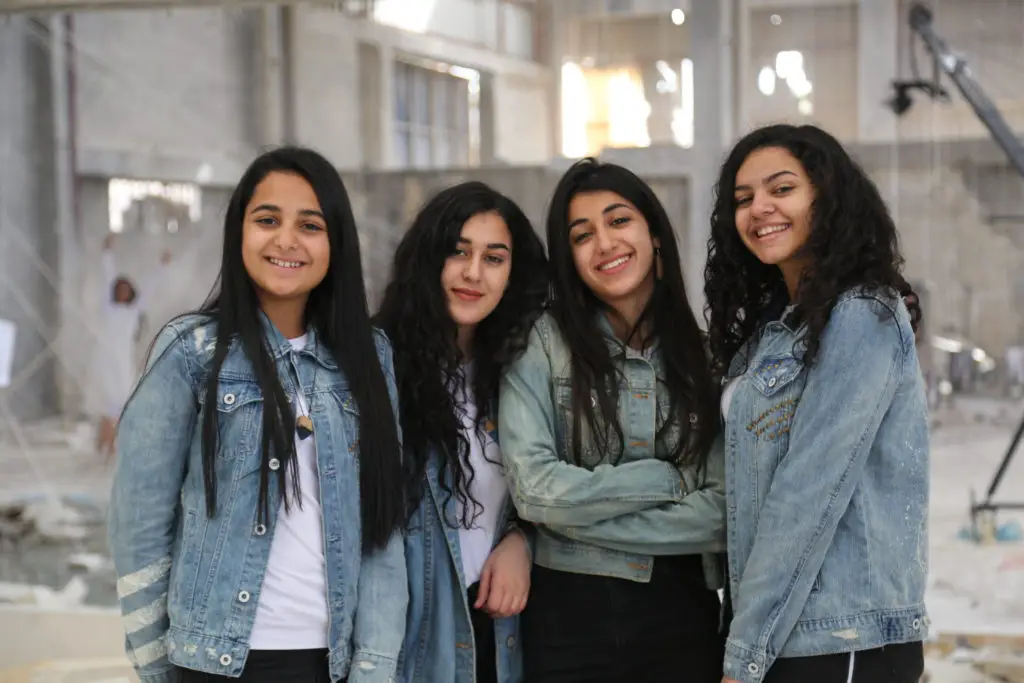
The girls of Ettijah–along with roughly 17,000 other Palestinian refugees–reside in the Dheisheh refugee camp which is located in the south of Bethlehem about twenty minutes’ drive from Jerusalem. The camp is cramped in a narrow stretch only one kilometer wide with highly limited access to power, water, and internet, among other resources, and it is raided by the Israeli forces almost weekly.
“Living in the camp is not something you can explain by talking,” Nadim laughed sardonically. “It can only be seen when you visit. You can see how there is no space for living. It’s so crowded and there’s no infrastructure. It’s not safe. We have night and day invasions by Israeli soldiers weekly. Children and youth keep getting arrested. We have electricity outages, no water in the summer, no electricity in winter sometimes. Poverty is rampant and there’s no hope for people. People in the camp do not consider themselves to be from Camp Dheisheh. If you ask them where they come from, they would tell you the name of the forty-five villages in western Jerusalem and the area west of Hebron where their families used to live before Israeli forces occupied them in 1949. They still remember their ancestral villages Zakariyya, Jirash, Beit Itab, etc.”
When I asked him if Palestinians hope to go back one day, he responded, “Nobody wants to stay in a refugee camp!”
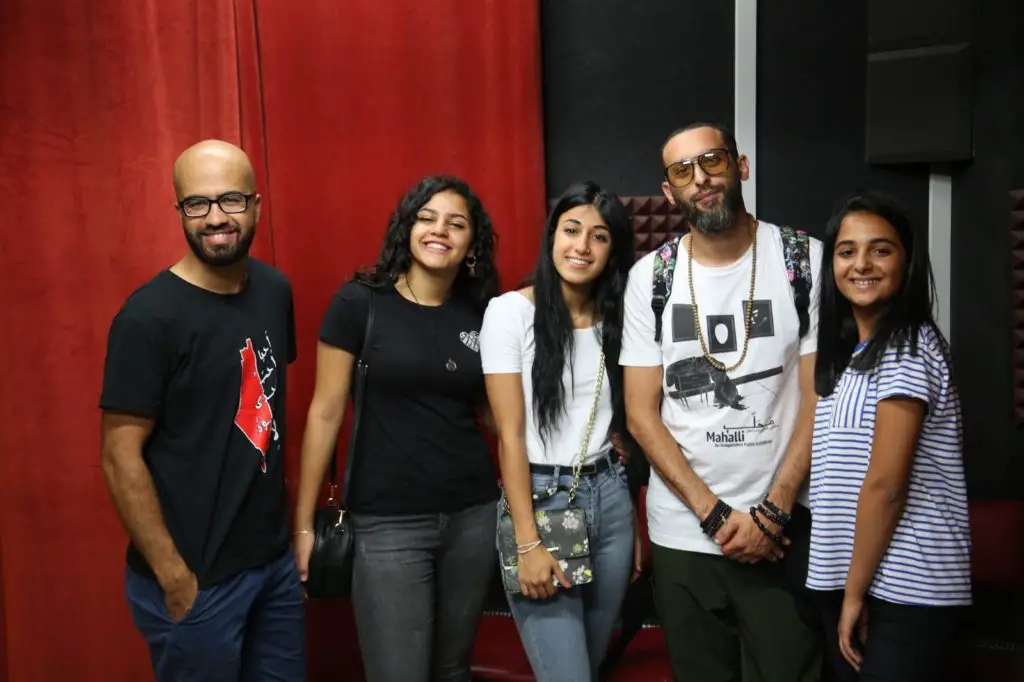
Shoruq Organization is a Palestinian initiative advocating art programs for the camp’s youth. The organization has many goals, such as providing workshops on filmmaking, audio editing, and photography, but perhaps most unique is its mission to train aspiring female hip-hop singers. Additionally, the NGO provides psychosocial support to young people who are distressed by the constant atmosphere of conflict, and at times assists those in need of legal aid–when they are arrested by the Israelis, for example. It is under such abnormally severe circumstances that these Palestinian girls created Ettijah.
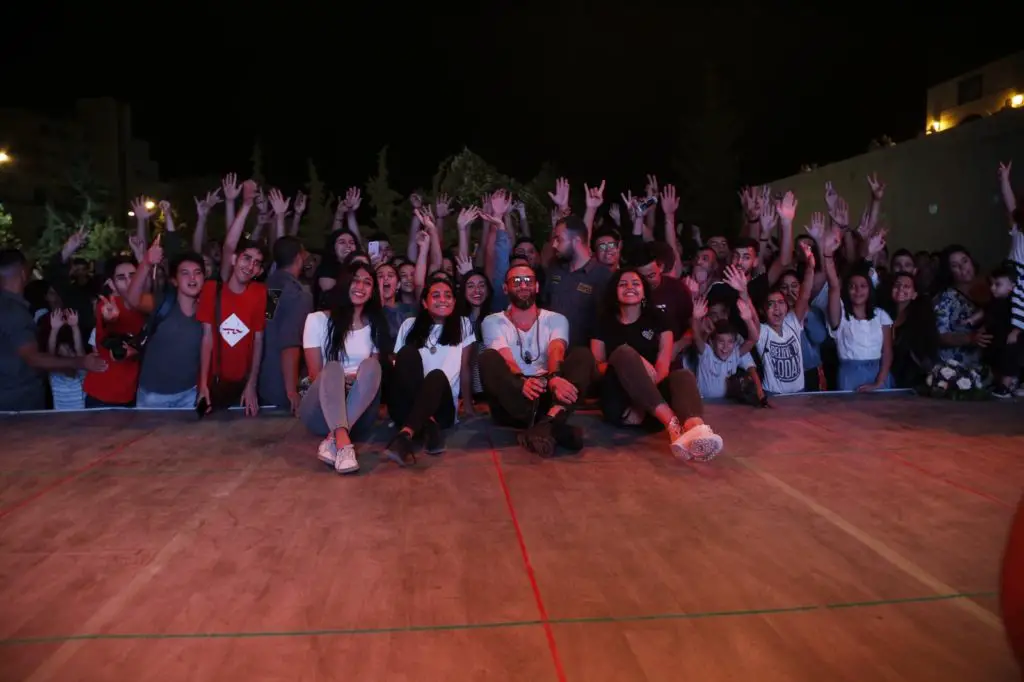
Diala is a fierce young woman who is well aware of her Palestinian heritage.
“I wouldn’t be the person I am today if it weren’t for what is happening to my people under the occupation,” she explained. “Palestinian people’s historical oppression and suffering are very present in our music.”
On a video hosted on the Shoruq YouTube channel, Diala elaborated, “Rap helped me to express and speak about things that I wasn’t able to discuss such as defending women’s rights, freedom, and forced displacement. Rap taught me about rights that I did not know I had.”
She went on to explain that organizations like Shoruq that prioritize girls give them a voice to speak about their societal marginalization through arts, photography, and rap.
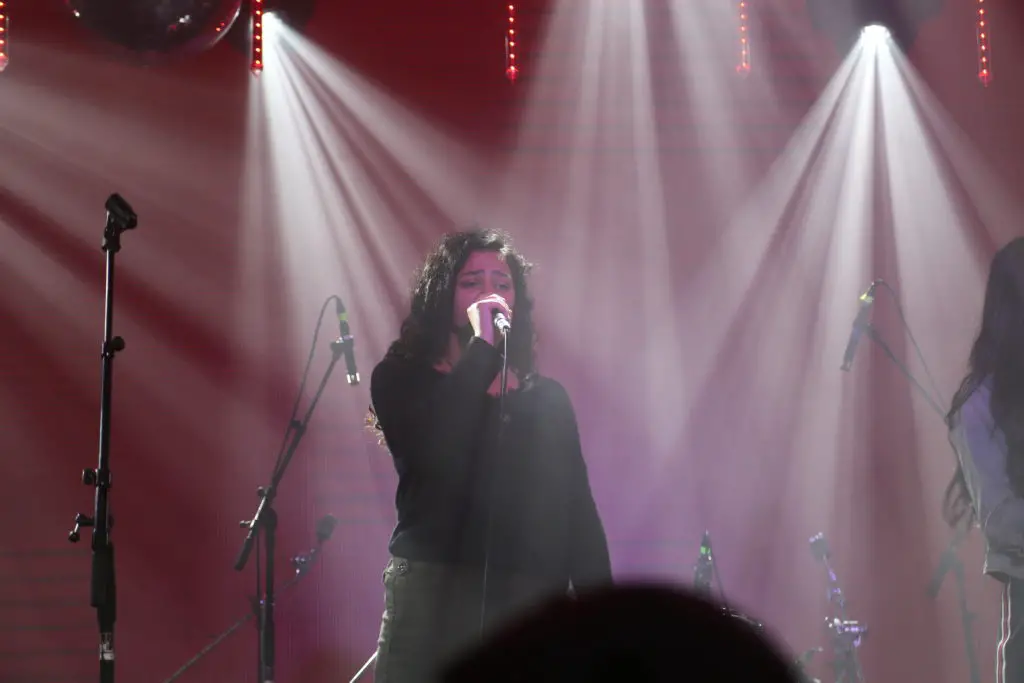
In the same video, Nadeen–now a rap and Dabka dance trainer–emphasized the significance of empowering women.
“Women can be leading roles in society. Our society is a patriarchal one, which is wrong,” she explained. “We shouldn’t discriminate between men and women. A woman is equally capable. She can be creative when given a leading role. This can change people’s minds. I can use rap to deliver my message to people that women can lead and raise awareness that they have the right to participate.”
In another video, Dalya tells the story of her encounter with Israelis and Palestinian violent confrontation on her way to music class, and how this incident nearly stopped her from pursuing her passion for playing the violin. “Music requires serenity and peace,” she said. “Unfortunately, serenity and peace do not exist in Palestine.”
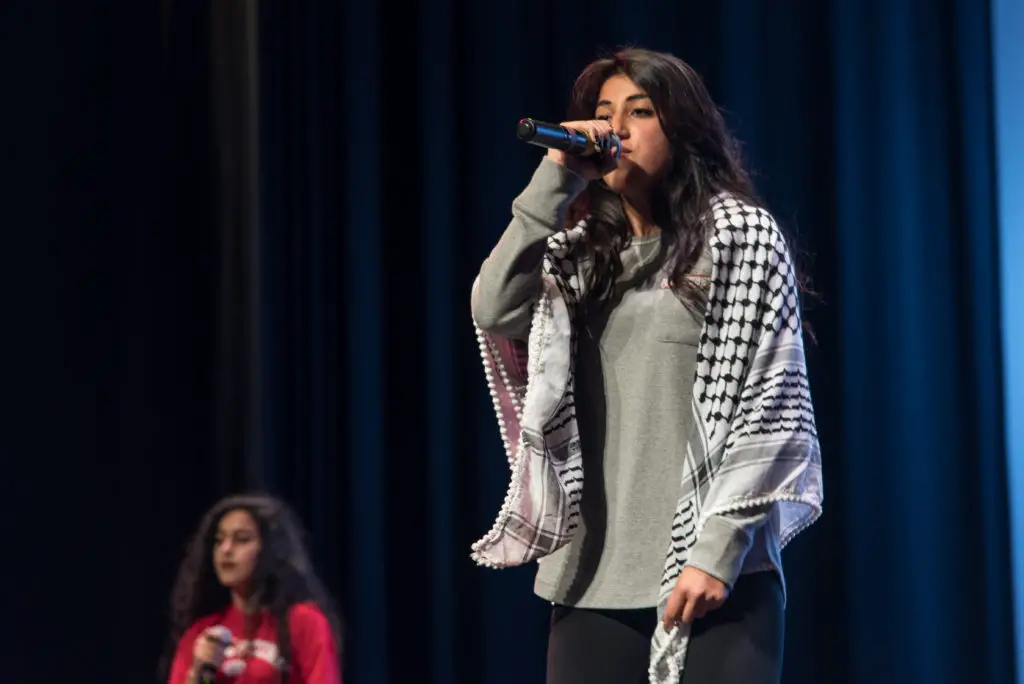
To these girls, hip-hop is a platform to express their life circumstances peacefully, and their message has found an appreciative audience. Their song Without Borders بلا حدود resonates with many around the world, especially women. It speaks of their experience as women living under the occupation and the societal pressures of womanhood in general.
The unswerving support these girls have received from their families has been the backbone of their music career.
“My family has been supportive since the beginning and they believe in the future of our hip-hop group,” Diala revealed. “We knew that hip hop was more for boys and there was going to be resistance. But, we were not interested in what people thought.”
Despite the existing gender-biased norms in their society, these girls strove to be an inspiration, paving the way for younger generations to come. Thanks to their resilience, today there are more girls interested in participating in Shoruq’s projects.
To these girls, hip-hop is a platform to express their life circumstances peacefully, and their message has found an appreciative audience
“For a girl in the Arab world, if your family does not support you, you will have a hard time following your passions,” Nadim explained. “All their families support them wholeheartedly and respect their work. After posting their first video Watani (Homeland) on Facebook, they faced a huge backlash from conservative Arabs mostly from outside Palestine asking them to stop. They argued that rap was for men and that women belonged in the kitchen.”
It’s worth noting that neither Diala nor Nadim use the word “feminist” to describe their music. While asserting the importance of confronting patriarchy, they continue to hold some traditional views regarding gender that are common to their culture, and Nadim argues that Ettijah’s music does not just focus on female issues but rather what Palestinians–men and women alike–face as a nation: refugee camps, social issues, and the Palestinian cause. He adds, “Calling us feminist rappers narrows what we are doing.”
They believe that their community in Palestine is substantially more open to their work now compared to when they started.
“We brought the change,” Diala says.
“I was at all their performances in Ramallah and Bethlehem,” adds Nadim. “People were shocked at first to see girls performing rap on the stage, but later expressed that these girls were strong and represented many things that other women could not do.”
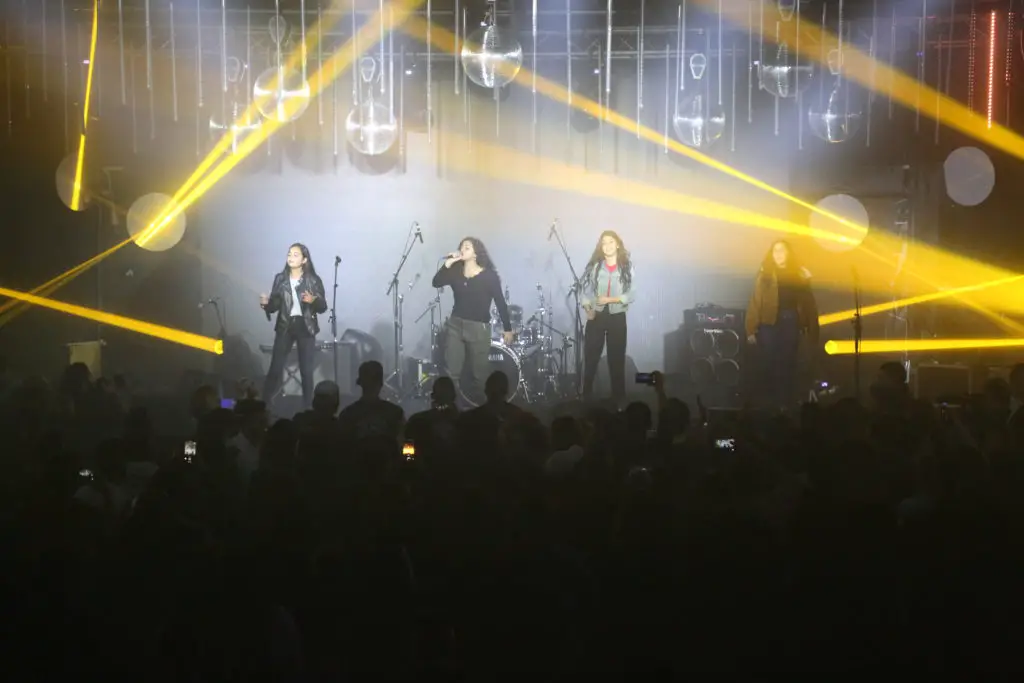
Thanks to Palestinian and Human Rights NGOs, Ettijah has toured Italy, France, and the United States, visiting the states of California, Georgia, New York, New Jersey, and Connecticut in 2017. This provided an invaluable opportunity to meet their fans abroad, network, and meet those in favor of the Palestinian cause.
Although their music has enjoyed some positive reception in Palestine, the U.S., and Europe, they hope to tour throughout the Middle East. They are yet to receive invitations from these countries and are not very well known in the Arab world.
As an Iranian who faces extreme difficulty in obtaining visas from European countries and the U.S., I was surprised to hear that the group found it more challenging to perform in the Middle East.
Although their music has enjoyed some positive reception in Palestine, the U.S., and Europe, they hope to tour throughout the Middle East
“Maybe this is something crazy but I want these girls to perform in Arab countries, to be honest, like Lebanon and Egypt,” explained Nadim. “There are many Palestinian or Pro-Palestinian NGOs based in the U.S. and Europe who find funding and support to facilitate the visa process, but we do not have any connections in the Arab world.”
Restrictions on movement are not only international. They face some difficulties in their own homeland. While living in the West Bank, Palestinians are required to apply for permission (the equivalent of a visa) to enter Jerusalem. Ettijah has been denied entry to the city by Israeli authorities on four occasions despite having formal invitations to perform from Arab and Swedish organizations based there. Regardless of the restrictions, Ettijah intends to press on and extend their work to a more global audience.
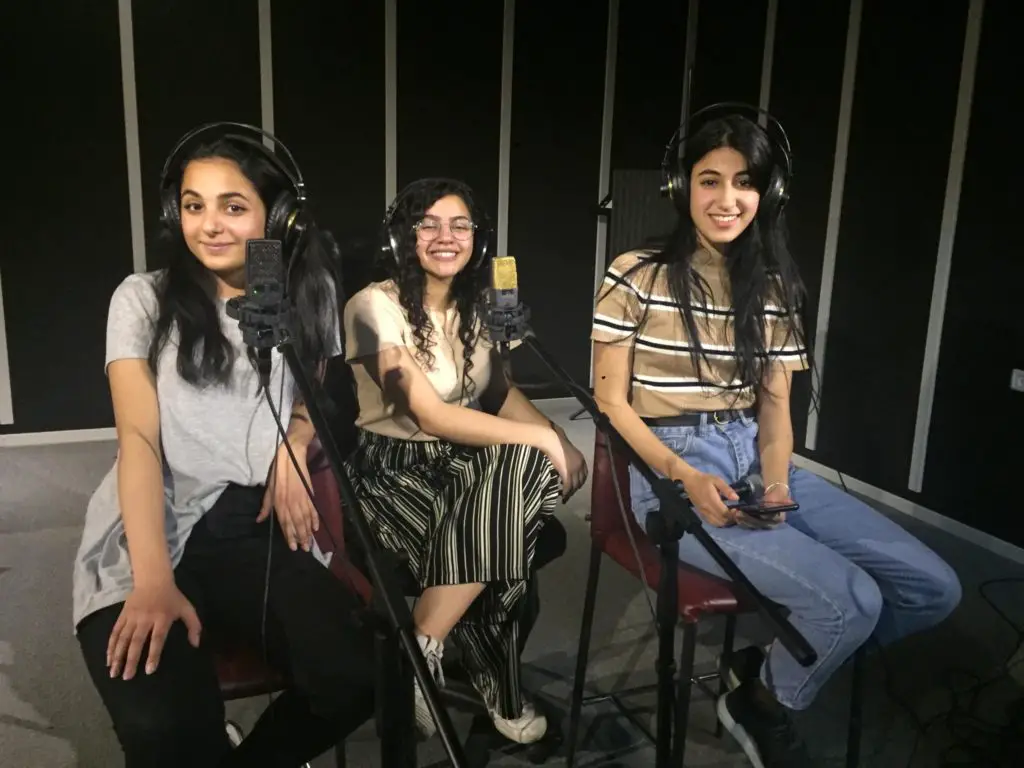
As the clock hit seven o’clock in the Dheisheh refugee camp, Diala was forced to leave Shoruq. Before she signed off, I asked if she had advice for young girls around the world who are inspired by Ettijah but are limited by their circumstances.
“Don’t let anybody tell you what to do!” she exclaimed. “You have the right to be who you want. Don’t let anybody have borders.”

